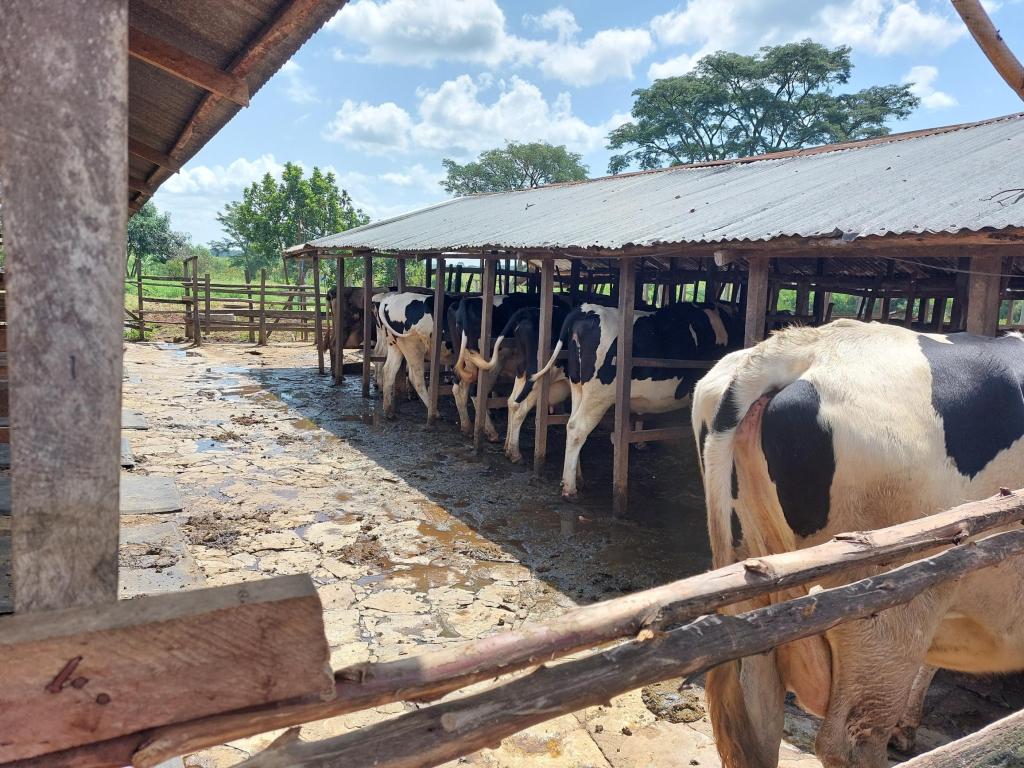Global genetics company, Genus ABS, has been awarded funding from the Bill & Melinda Gates Foundation to support farmers in East Africa.
Ethiopian dairy farmers face challenges with low yielding cows, averaging fewer than 3 litres of milk per day. With over 60 million cows in Ethiopia, increasing individual cow performance and creating progressive female progeny as replacements, and in turn reducing overall numbers, is critical to not only mitigate environmental concerns on natural resources, but to help local farmers and livestock keepers to thrive.
To support this initiative, bovine genetics company, Genus ABS, has received a grant from the Bill & Melinda Gates Foundation to assist farmers and livestock keepers in Ethiopia as part of a three-year project with Land O’Lakes Venture37.

Livestock provide a primary source of income and nutrition to rural communities across Sub-Saharan Africa (SSA). Low-income, small-scale livestock keepers produce the vast majority of protein in SSA, and improvements and progress in livestock genetics can support those farmers to sell better produce of a higher standard, significantly contributing to the nation’s reduction in poverty.
The foundation’s funding, alongside a matched proportion from Genus ABS, will be used to support farmers and livestock keepers in Ethiopia through in-country training with both Artificial Insemination Technicians and farmer mentors, with a focus on general cow management, reproduction, and the benefits of using artificial insemination with female sexed semen, such as Sexcel®.
Genus ABS and Land O’Lakes Venture 37 will provide further support by ensuring scalable, market-wide access to female dairy genetics long term.

With a shortage of beef processing infrastructures in-country, male dairy calves are often not profitable and are left to graze nomadically. Adopting a Sexcel®, sexed genetics, approach can achieve a 90% conception rate relative to conventional semen based on Genus ABS’ Real World Data® and offer a much higher probability of female offspring.
Regional Director of Genus ABS, Andrew Thompson, said: “I am very excited by this project. Of utmost importance is our approach to using sexed semen whilst developing an animal that suits the East African dairy environment.
“This will make a huge difference to the lives of people living there in terms of nourishment and providing the opportunity for them to create sustainable farming businesses.”

Partner organisation Land O’Lakes Venture37, is a 501(c)(3) non-profit committed to helping communities around the world thrive through agriculture.
David Harvey, Group Director at Land O’Lakes, said: “We’re excited to see the tangible benefits for smallholder farmers in Ethiopia. By improving dairy genetics, we’re ultimately helping smallholder farmers produce more milk and improve their incomes.
“Farmers with one or two cows that previously produced 2 to 5 litres of milk per day, for example, will be able to produce 10 to 20 litres. This is going to make dairy products more accessible in Ethiopia, which will also have positive ripple effects on local markets and nutrition outcomes.
Genus ABS’ mission is to pioneer animal genetic improvement to help nourish the world. The support from the foundation and the partnership with Land O’Lakes Venture37 ensures both meaningful and tangible outcomes can be achieved.






